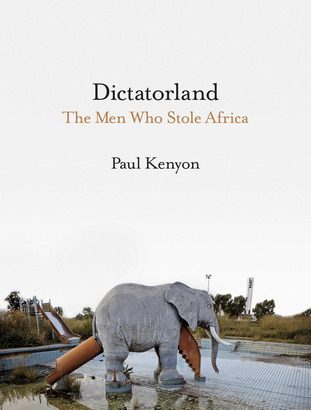Dictatorland: The Men Who Stole Africa
by Paul Kenyon
(Head of Zeus, £17)
Peter Hegarty
Many millions of Africans have lived under tyrants, endured long years of oppression, and watched in enraged impotence as the dictators squandered public money on the erection of grandiose monuments to themselves.
What explains the rise of strongmen in so many African states? To seek an answer BBC correspondent Paul Kenyon goes back to the colonial era.
With the notable exception of Irish missionaries, one of whose charges was the young Robert Mugabe, Europeans went to Africa to make money, not to improve the lives of Africans. When they finally departed, most of their former subjects were undereducated or illiterate, for neglect was as pronounced an aspect of colonial rule as the plunder Conor Cruise O’Brien describes in To Katanga and Back.
Independence
When the Belgians granted nominal independence to the Congo in 1960, for instance, only 17 Congolese held university degrees, and only one of these graduates was a medical doctor. Africans were unfamiliar with representative democracy and political parties, neither of which their former masters had encouraged or even tolerated.
Their minds solely on their own material betterment, the colonists did not create the strong institutions that might have held rising African politicians to account or checked the spread of corruption after independence.
Independence came, by and large, before Africans were ready for it. Educated, charismatic leaders such as Houphouet-Boigny in Côte d’Ivoire, Macías Nguema in Equatorial Guinea, Mobutu in Congo, easily won over the politically unsophisticated people of the weak new states.
Unrestrained power corrupted these three as it later would ascetic, idealistic men like Mugabe and Eritrea’s reclusive leader Isaias Afwerki, both of whom seem to have felt entitled to absolute power and its rewards after a life of struggle and privation.
Never feeling secure the strongmen employed violence against opponents or perceived opponents. Mugabe played tribe against tribe, sending thugs to rampage through Matabeleland. The diminutive, disturbed Macías Nguema killed a quarter of the population of Equatorial Guinea before his nephew had him executed and took over the micro-state.
Independent Eritrea, in which the world once reposed great hope, has become a slave state in which Afwerki, as his former deputy memorably puts it, “is the army, the security services, the legislature, the executive, the judiciary and the economy. He is everything.”
Political achievements also encourage a sense of entitlement to rule unopposed for ever. After taking power Gaddafi played tough with the oil companies, endearing himself to people at home and abroad as the money poured in. Had he retired to his tent after say, 10 years, we might have remembered him not as a tyrant, but as the man who transformed Libya.
This brisk, well-informed, grimly fascinating book has much to say about the financial side of dictatorial rule. Strongmen need money, and a lot of it. Having no popular mandate they must buy support instead. They need to reward tribal leaders for their allegiance, and members of death squads for carrying out their bloody chores. To keep the cash flowing in, they devise ingenious ways of siphoning off public money and stealing resources.
Paul Kenyon’s dictators have swallowed up much of the wealth of Africa. Machineries of repression keep them in power. In his forthright criticism of the uniformed thieves who run Nigeria Ken Saro-Wiwa spoke for ordinary Africans when he demanded that oil revenues should serve economic development. Much good his courageous activism did him.


